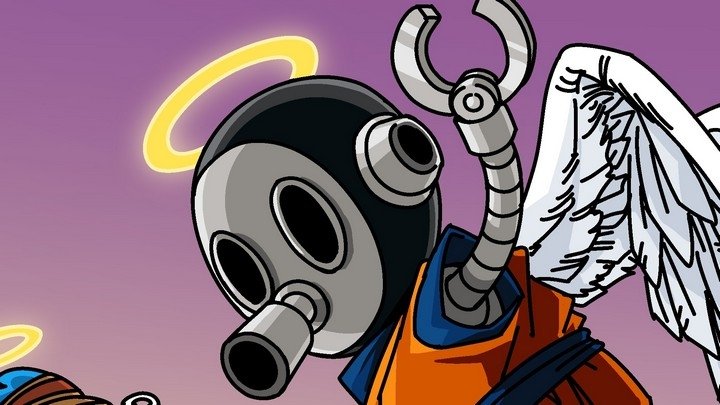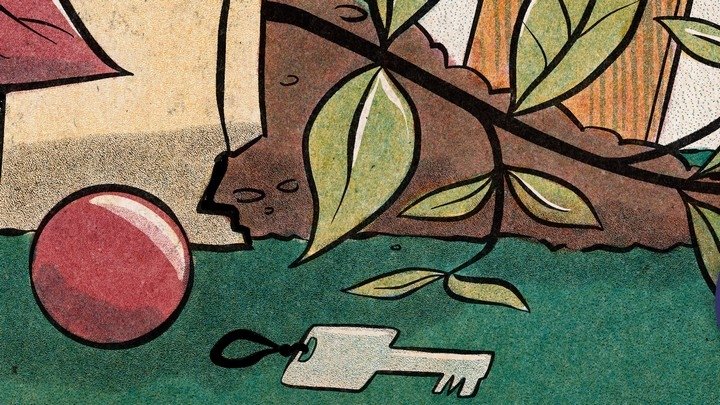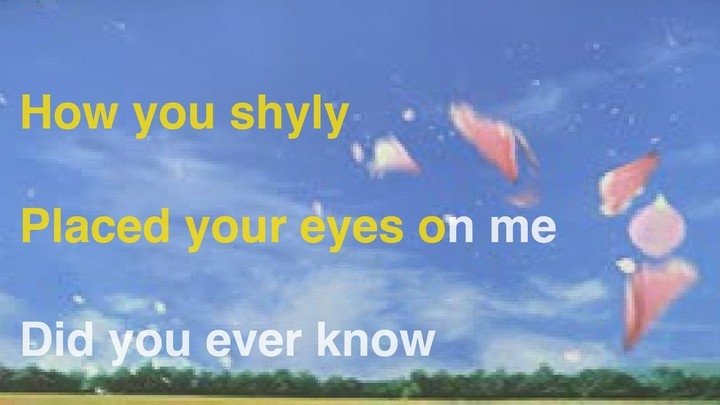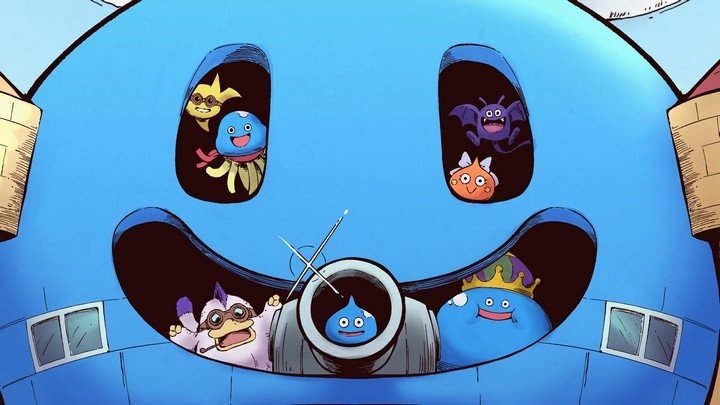SNK treats the NES right with Crystalis
The 1990 action RPG still stands out 30 years later
You'd think that a person such as myself, a vocal SNK fan and NES-owning child, would have been familiar with Crystalis, an action-RPG made by SNK for the famed Nintendo console in 1990. However, when Jeremy Parish and I sat down and discussed SNK's pre-Neo Geo history on Retronauts I was forced to admit I had never even heard of it, let alone played it. Since it is included in both the SNK 40th Anniversary Collection and as a free NES title for Nintendo Switch online subscribers, I have been playing Crystalis in preparation for today, its 30th anniversary.
Playing Crystalis even decades after the fact has reminded me that SNK makes good games, even when they're not particularly original.
From the start Crystalis stands out from similar RPGs of its era by making it clear that despite all the swords and magic elements this is a story set in the far future where humanity has rebuilt society after nearly being wiped out in 1997. The hero, who has no name or memory, wakes up in a cryogenic chamber and sets out on his way. There's no princess but there is an old man willing to give you a sword so you can fight monsters.
If The Legend of Zelda, which Crystalis resembles in its overheard perspective, stands as the archetypal action-RPG, Crystalis feels like a response that emphasizes both halves of the genre. Every sword in Crystalis can be charged and fired as a long-range attack, and the hero can move in all eight directions with a charge on standby. The hero also gains a jump ability early in the game, making movement and combat more fast-paced and dynamic than in The Legend of Zelda. But while Zelda eschews any RPG mechanics such as experience points, magic points, levels, and features minimal dialogue, Crystalis has all of these RPG elements intact. There are towns and shops and dozens of named NPCs who make frequent appearances throughout the hero's adventure, as do villains who taunt the hero. The story is almost deep for 1990 compared to most other console games; there are a lot of characters to keep track of and their relationships matter.
The downside to all this is how much onus the game puts on the player to figure out what's next or keep track of anything. Talking to every villager is a must, if only to trigger events elsewhere that will allow you to progress. Figuring out what items do is awkward mostly due to the UI: certain items or spells trigger with the B button and others with the A button. That aforementioned jump ability? It's tied to an item that no one will tell you how to use or what it does. The game does have a save feature but it too is easy to miss: press start and then select to access it.
Much has been written of The Legend of Zelda giving players a land to explore freely; just because the dungeons are numbered, there's nothing stopping Link from beating Level 2 ahead of Level 1. Indeed, the game doesn't even force Link to grab a default weapon, and expert players can reach the final boss without ever collecting a sword. Crystalis flirts with giving players freedom to explore, but all progress in the game is tightly controlled. The layout of the map lacks the openness of Hyrule as there is seldom more than one place the hero can go next. Even when multiple routes exist, there will be a barrier - literal or metaphorical - that makes passage impossible. I tried to climb a mountain and I was denied entry, receiving a message "You're not strong enough yet!"
As fun as the basic combat is, Crystalis lacks subweapons so using a sword is the only way to slay monsters, clear obstacles, or level up. As the story unfolds the hero gains new swords or items that power up each sword which is essential because many monsters in Crystalis are only vulnerable to certain swords or require the hero to be at a certain level. This effectively eliminates sequence breaking, low-percent runs, or alternate routes through the game. Worse, it means that in many areas you will have to swap weapons (and their associated enhancement items) mid-battle because different enemies with different vulnerabilities often share the same space. "Cumbersome" isn't a strong enough adjective to describe this process.
Perhaps in lieu of subweapons, Crystalis offers a variety of magic spells which are learned at key junctures through the game. However, very few of them have offensive applications. Refresh is the most immediately useful as it refills the life bar. Telepathy is the most versatile: it enables conversation with non-human characters (including an entire village of orcs, a lonely monkey, and a dolphin that is willing to be mounted) and it can be used to contact up to four "wise men" who will offer hints as to the next story objective. Of course, if they don't have anything important to say, you've wasted precious magic points which do not refill automatically. The remaining spells are primarily story-relevant, so I found myself conserving magic whenever possible for healing because the only way to refill the meter is by using a consumable item or paying for a night in an inn.
My ultimate takeaway from Crystalis was an affection for its presentation and abundance of ideas while lamenting its poor UI and short-sighted usage of enemy invulnerabilities. It's true that certain foes and bosses in The Legend of Zelda have specific weaknesses, but when Crystalis requires the hero to achieve a certain level before progressing, it forces players to waste time with repetitive battles, bringing real progress to a halt. Over/under leveling in an RPG should always be an option, never a prerequisite.
I'm also struck by the timing of Crystalis' release in April of 1990. While relatively late in the Famicom's lifecycle, 1990 was still a booming year for NES games. However, it was mere weeks before SNK would launch their own arcade/console hardware, the Neo Geo. Crystalis isn't a bad looking 8-bit game for its time, and the music is definitely catchy, but compared to a Neo Geo game...there is no comparison! Of course there weren't any traditional RPGs on Neo Geo so perhaps this was a case of SNK trying to flex a game development muscle they weren't sure existed. Or perhaps it was a gambit to mend the company's home console reputation in light of previous SNK games on NES that had been ported poorly by third parties - compared to NES Ikari Warriors or Athena, Crystalis looks and plays like manna from heaven.
Was Crystalis impressive to me, an unapologetic SNK fan, thirty years after its release? Yes, when viewed in context it's got a lot of good qualities. However, its flaws were just as glaring as its merits, and despite a generous save system (to say nothing of save states) I did not actually complete the game. Having played it, it remains a pleasant surprise, like finding out a band you like released an EP right before you discovered them through their biggest hit album. Crystalis will never be my favorite SNK game or RPG, but it's worth checking out. And if Nintendo deemed it worthy of imitation in The Legend of Zelda: Breath of the Wild, I'd say there's no greater compliment in the world.




